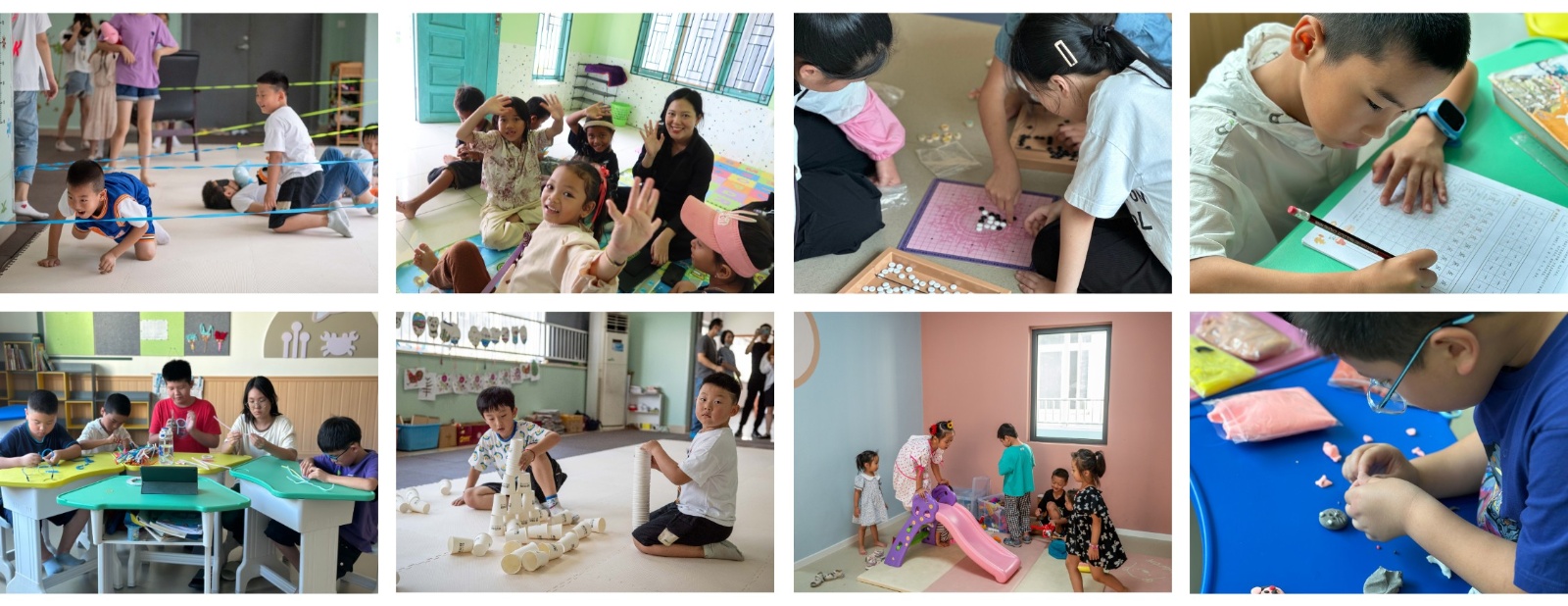

Photo: CFS highlights from previous years
This summer, another four factories in China are taking an important step toward safer, more supportive workplaces by launching Child-Friendly Spaces (CFS). This year marks the tenth anniversary of CFS, a programme designed to provide a safe, structured environment for workers’ children during school holidays while allowing parents to focus on their work with peace of mind. CFS benefits not only families but also suppliers by helping prevent child labour and related compliance risks in production areas, while also improving worker satisfaction and retention.
CFS: An Impactful Solution for Risk Prevention and Workforce Wellbeing
At its core, CFS addresses a key issue: the heightened risk of child labour during the summer months, when schools are closed and affordable childcare options are scarce. In factories without childcare support, children may end up accompanying their parents to work and, in some cases, entering hazardous production areas. CFS directly mitigates this risk by offering children a safe space within or near the factory during working hours.
Each space is operated by trained factory staff or professional teachers and provides a wide range of engaging activities, from reading and arts to sports, singing and educational games. Some factories go even further by organising field trips to museums or cooking classes, giving children enriching experiences they wouldn’t otherwise access.
CFS is free of charge to workers and aligns with regular factory hours, allowing parents to drop off and pick up their children with ease. Many even share lunch breaks, strengthening family bonds during a time when they would otherwise be apart. For migrant workers with left-behind children, CFS offers an opportunity for families to reunite and spend quality family-time together – a rare benefit for many migrant workers in China who often only see their children once a year.
108 CFS Opened in Eight Countries
To date, 104 CFS have been set up by The Centre across eight countries, with these four additional factories bringing the total to 108. Many of these factories and production sites are now operating CFS independently year after year.
CFS can be implemented as a standalone initiative, but it is most commonly integrated into the broader WeCare Family-Friendly Workplaces (FFW) programme, a comprehensive approach to supporting worker wellbeing.
Good for Families and Business
The positive outcomes of CFS translate into tangible business benefits:
Improved workforce stability: Factories with CFS report that workers are more likely to remain employed for two or more years.
Higher productivity: With children safely cared for, workers can focus more fully on their tasks, leading to increased efficiency.
Greater workplace satisfaction: Workers express higher levels of trust in management and appreciation for their employers’ support.
Enhanced reputation: Factories that invest in worker wellbeing gain recognition from buyers and partners for their proactive approach to social compliance and child protection.
How It Works: Key Steps in Setting Up a CFS
Information Session – Introducing the concept to factory leadership and staff
Pre-assessment – Evaluating needs, facilities and services needed
Staff Training – Training selected personnel in CFS facilitation
Setup Support – Information and support are provided throughout the set-up and operation of the CFS, including parent sign-in/sign-out procedures, daily health, hygiene, and facility checks by teachers, and the design and organisation of age-appropriate activities
Impact Assessment – Measuring outcomes and gathering feedback
Please contact us if you would like to learn more or get involved.
By using this website, you agree to our use of cookies. We use cookies to provide you with a great experience and to help our website run effectively.